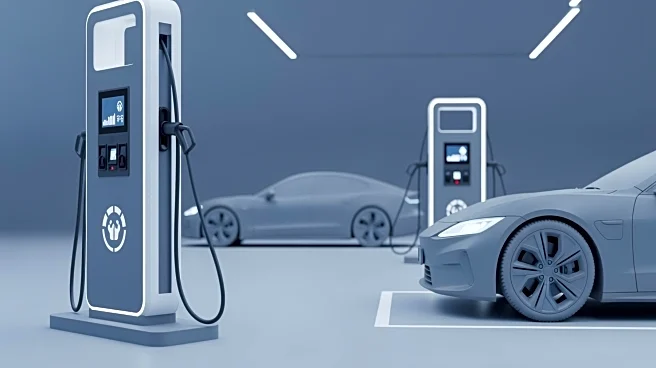What's Happening?
Tesla is facing scrutiny for its strategy of not introducing new mass-market models since the Model Y in 2020. Critics argue that Tesla's reliance on incremental updates and software improvements may not suffice
in the competitive automotive market. Analysts highlight that Tesla's limited model lineup excludes it from significant market segments, such as three-row SUVs, which are popular in the U.S. Despite the introduction of refreshed versions of existing models, concerns persist about the aging portfolio's impact on sales. Tesla's approach contrasts with competitors like BYD, which have rapidly developed new models to meet consumer demands.
Why It's Important?
Tesla's strategy could have significant implications for its market position and financial performance. The lack of new models may affect customer loyalty and sales, as consumers often seek the latest innovations. Tesla's approach also raises questions about its ability to compete with other automakers that are expanding their electric vehicle offerings. The company's focus on software updates and autonomous technology may not fully address consumer preferences for diverse and updated vehicle options. This situation could influence investor confidence and Tesla's long-term growth prospects in the evolving automotive industry.
Beyond the Headlines
Tesla's strategy reflects broader trends in the automotive industry, where traditional design cycles are being challenged by rapid technological advancements. The company's focus on software and autonomous technology aligns with a shift towards digital innovation in vehicles. However, this approach may also highlight the tension between maintaining a cutting-edge brand image and meeting traditional consumer expectations for new models. Tesla's decisions could influence industry standards and consumer perceptions of what constitutes value in the automotive market.









